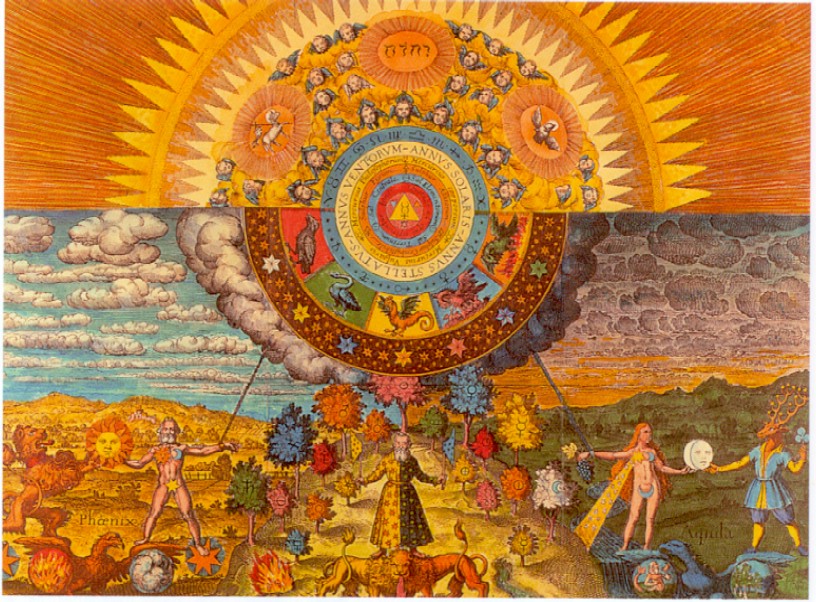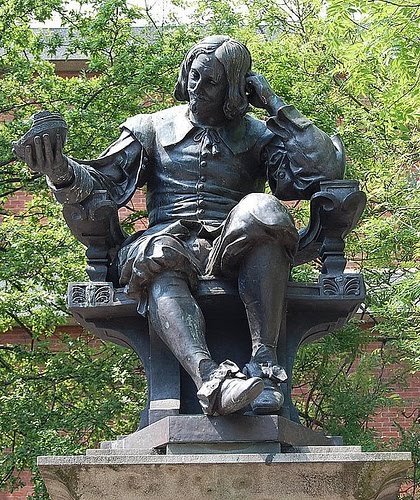Music can draw the hearer in chains of gold to the consideration of holy things. - Thomas Morley
The 1711 Sales Catalogue of the library of Sir Thomas Browne records a copy of Thomas Morley's
A Plaine and easie way to make Musicke (1597) as once shelved at the Norwich physician and philosopher's home. Morley's book remained in print for over 200 years and is a valuable document upon the music-making of his era.
From his humble background as the son of a Norwich brewer, Thomas Morley (1557-1602) rose to the heights of organist
at Saint Paul's cathedral and was privileged
to study music under William Byrd. Morley's era, the second half of the sixteenth century, saw a surge in music-making in England, in particular a near craze for the accomplishment of skilled lute-playing among gentlemen, especially courtiers. Morley's era also witnessed the popularity of secular verse sung to complex harmonies known as madrigals, of which he was a prominent composer. Morley's musical skills also catered for instrumental music-making when in 1599 he published
The first book of Consort Lessons, arrangements of his and various other composer's music for broken consort; the six instruments of the broken consort consisting of lute, flute, bandora, cittern and two
viols, bass and treble. The viol family of string instruments are precursors to the violin family. To modern ears
a viol consort of three to five players, can sound slightly and deliciously 'creaky' with their wide compass of enharmonic overtones. Elizabethan music-making also included performances of the masque, an elaborate form of early theatre from which ballet and opera evolved. Masques were often performed at the Royal Court and involved singers and instruments. Lavishly produced, they featured spectacular costumes and stage-effects.
 |
| Thomas Morley |
Morley's era was one in which the so-called 'Golden Age' of English music flourished. From roughly the 1560's until Purcell's death in 1695, English music developed and established a distinctive voice, a 'Golden Age' of musical talent which would not occur in England again until the second half of the 20th century. Besides Thomas Morley, other Elizabethan composers of note include 'the father of English music' William Byrd (1540-1623),
the melancholic lutenist John Dowland (1563-1626) and the keyboard player Thomas Tomkins (1572 -1656) who incidentally, owned a signed copy of Morley's Plaine and easie way to make Musicke. Of the later Jacobean era, William Lawes (1602-43) and the industrious and pious John Jenkins (1592-1678) who may have been acquainted with Sir Thomas Browne when resident in Norfolk, are all rewarding to listen to. Today, with the revival of interest in music which pre-dates J.S. Bach, the early music composers of England are frequently recorded and performed. There's much in the catalogue of early English music well worth hearing, including Morley's madrigals along with his
First book of Consort Lessons.
One wonders whether Morley played any part in the music-making festivities when Queen Elizabeth I visited Norwich in 1578. A contemporary reported of her visit -
Herewith she passed under the gate.....and the musicians within the gate, upon their soft instruments, used broken musick...The next night...there was an excellent princely mask brought before her after supper, by Master Goldingham, in the Privie Chamber; it was of gods and goddesses, both strangely and richly apparelled...Then entered a consort of musicke; viz. six musicians, all in long vestures of white scarcenet girded about them, and garlands on their heads, playing very cunningly.
Queen Elizabeth's 'Royal Progress' to Norwich in 1578 is included in the English composer Benjamin Britten's opera
Gloriana which was written in the year of Queen Elizabeth II's Coronation in 1953. Act Two of Britten's opera is set against the back-drop of the Guildhall at Norwich. Elizabeth I is welcomed by the City Recorder and then a masque is performed which she and the Royal court watch. Six dances, including a Morris dance are performed. Personifications of Time and Concord are among the principle characters in the masque who, accompanied by a chorus of rustic country maids and fishermen conclude the entertainment with a homage to the Queen.
It was a neat device of Benjamin Britten's to include a visit to Norwich by 'good Queen Bess' in his opera
Gloriana. It must be nearly 40 years ago now, when a teen-age school-boy, if I remember rightly, that our rehearsal of
Noye's Fludde, a medieval mystery play set to music by Benjamin Britten was interrupted. It was the composer himself, who dropped in to thank the boys and girls for all their hard work rehearsing his work. Britten's cantata for mixed ensemble of amateurs was first performed in Orford church in June 1958, the composer insisting that no future performances were to be made in a theatre, but only ever in churches or Halls.
Its worth noting that Browne's edition of Morley's primer on music (Sales Catalogue Page 45 number 47) is a first edition when in fact a modern edition could have been easily acquired, evidence of Browne being the consummate bibliophile and collector of rare books. One cannot resist noting that the frontispiece illustration to Morley's book (pictured above) depicts not only the various muses associated with music and learning, but also the sun and moon as deities. Finally, also at the very bottom of the frontispiece illustration holding a staff-like caduceus, there can be seen the elusive god of travel and communication, ruler of traders and thieves alike and patron of alchemy, Mercurius.







































